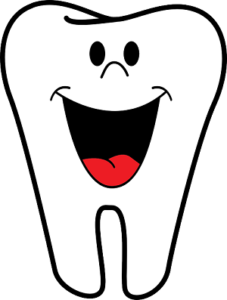
A tooth extraction can help the remaining teeth grow more evenly.
When you need to have a tooth pulled, it is a procedure known as a tooth extraction. While your parents might have offered to pull a loose tooth out for you when you were younger, it’s much safer to leave it to the professionals.
Why Do You Need One?
If your tooth is impacted, it means that it won’t grow in properly. While this term is typically associated with wisdom teeth (which don’t erupt until a patient reaches their late teens or early 20s), it can apply to any tooth. Your children might have impacted teeth while they are teething. This doesn’t mean that they will need an extraction right away, but they probably will once they get older.
A tooth extraction can help the remaining teeth grow more evenly. This is because they will have more room, even though teeth will naturally shift to fill in gaps. One of the most common reasons you’d be advised to schedule a tooth extraction, however, is due to tooth damage. Whether it is caused by an injury, or advanced disease and decay, at some point you will need an extraction.
How The Process Works
If your dentist recommends that you get an extraction done, don’t procrastinate. Although this is an unpleasant experience, getting it done sooner rather than later will leave you much happier and healthier. The first step to determining if you need a tooth extraction is an X-ray scan. You’ll then need to fill out paperwork relating to any medical conditions or allergies that could make the extraction procedure more complicated.
Anesthesia will also be used to help soothe you during an extraction. Depending on how erupted the tooth is, your dentist should be able to perform the procedure themselves. However, sometimes you’ll be referred to a dental or oral surgeon, especially if the tooth in question is broken or chipped.
What Happens Next?
After a tooth extraction, you’ll need to be extra careful when eating, drinking, and brushing your teeth. You’ll be given some medication to deal with the pain, but luckily the pain will go away on its own after a couple days. When you feel hungry, eat softer foods like eggs or mashed potatoes until your mouth has had time to adjust. Be careful when you go to floss or use mouthwash. Don’t exercise for a full week after your procedure, as this helps to ensure that your mouth heals as it should. While you should be fully healed after two weeks, it can take up to another three months for the bones and tissues around your mouth and jaw to finish healing.
KEEP YOUR MOUTH HAPPY WITH ANNAPOLIS DENTAL CARE!
Whether it’s a regular check-up you need or a tooth extracted, Annapolis Dental Care has the expertise and compassion to work with you on improving your oral health. Your comfort and health are our top priorities, and so we go above and beyond to make our patients happy and give them the highest quality care. To set up an appointment today, please give us a call at 410-571-5014 or visit us online. For more oral health tips for you and your family follow us on Facebook, Twitter, Google+ and YouTube! We are always looking for new patients, so if you live in Arnold, Annapolis, or Anne Arundel County, MD, come on down!
